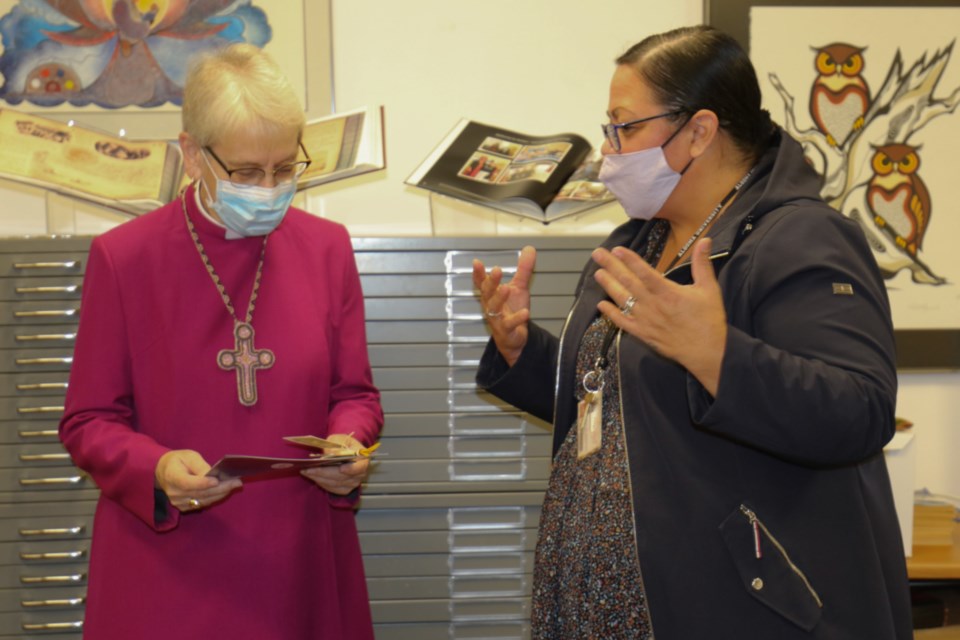It’s the first visit to the site of the former Shingwauk Indian Residential School for the current leader of the Anglican Church of Canada, but primate and archbishop Linda Nicholls already knows the importance of the land that Algoma University stands on today.
Nicholls took a tour of the Shingwauk site Saturday to commemorate three decades of work towards reconciliation between the Anglican Church of Canada, which operated the residential school, and a number of survivors and community stakeholders, including Shingwauk Education Trust, Children of Shingwauk, Batchewana First Nation and Garden River First Nation.
“The children of this community began to tell their story in the early 1980s, and it’s an important place for recognizing that significance of telling the story,” Nicholls said.
The Shingwauk site tour included visits to Shingwauk Residential Schools Centre, Shingwauk cemetery and the Anishinabek Discovery Centre, which houses the newly-established Shingwauk Education Trust’s Library and Archives Research Centre.
For Shingwauk Residential Schools Centre Director Elizabeth Edgar-Webkamigad, whose parents attended residential schools, visits to the Shingwauk site are important in terms of ongoing reconciliation efforts.
“It’s really important to have visits like this - very important people in high places who model and take leadership in terms of moving truth and reconciliation forward, not only in their own institutions, but here at Algoma University, a post-secondary institution that actually is housed in a residential school site,” Edgar-Webkamigad told SooToday.
Nicholls told reporters during the site visit that the Anglican Church of Canada has a strong commitment to working with Indigenous people, including the establishment of the Anglican Council of Indigenous Peoples and Indigenous ministries department, and implementing a national Indigenous archbishop who works with communities across Canada.
“If we don’t know our history, we have run the risk of repeating it, and learning how and why our own structures and ways of looking at things have allowed this happen will help us change, and certainly the Anglican Church is in the middle of a major look at colonialism and the role it played, racism and the role it played, and that, of course, is increasingly important today to understand how what began as something that we thought was good - and participated in something that we thought was for the benefit of the children - could go so horribly wrong,” said Nicholls. “It’s not just individuals, it’s also the whole system - the government, the church, the colonial western European sense of superiority - that led us into a place of believing that we knew better, and did not adequately acknowledge or listen to the wisdom that was in the community already.”
Edgar-Webkamigad says that although conversation around truth and reconciliation began quietly a few years ago, but in the last 5 to 10 years - especially with the introduction of the Truth and Reconciliation Commission’s Calls to Action - she’s witnessing more and more people wanting to be an active part of the healing.
“The amount of people coming here, that tells me that we’re in an important time - truth, reconciliation and healing is something that people are genuinely interested in moving forward, and that is a good thing,” she said.
The Anglican Church of Canada issued an apology to residential school survivors in 1993 and a further apology in 2019 for the church's role in causing spiritual harm to Indigenous Peoples.
